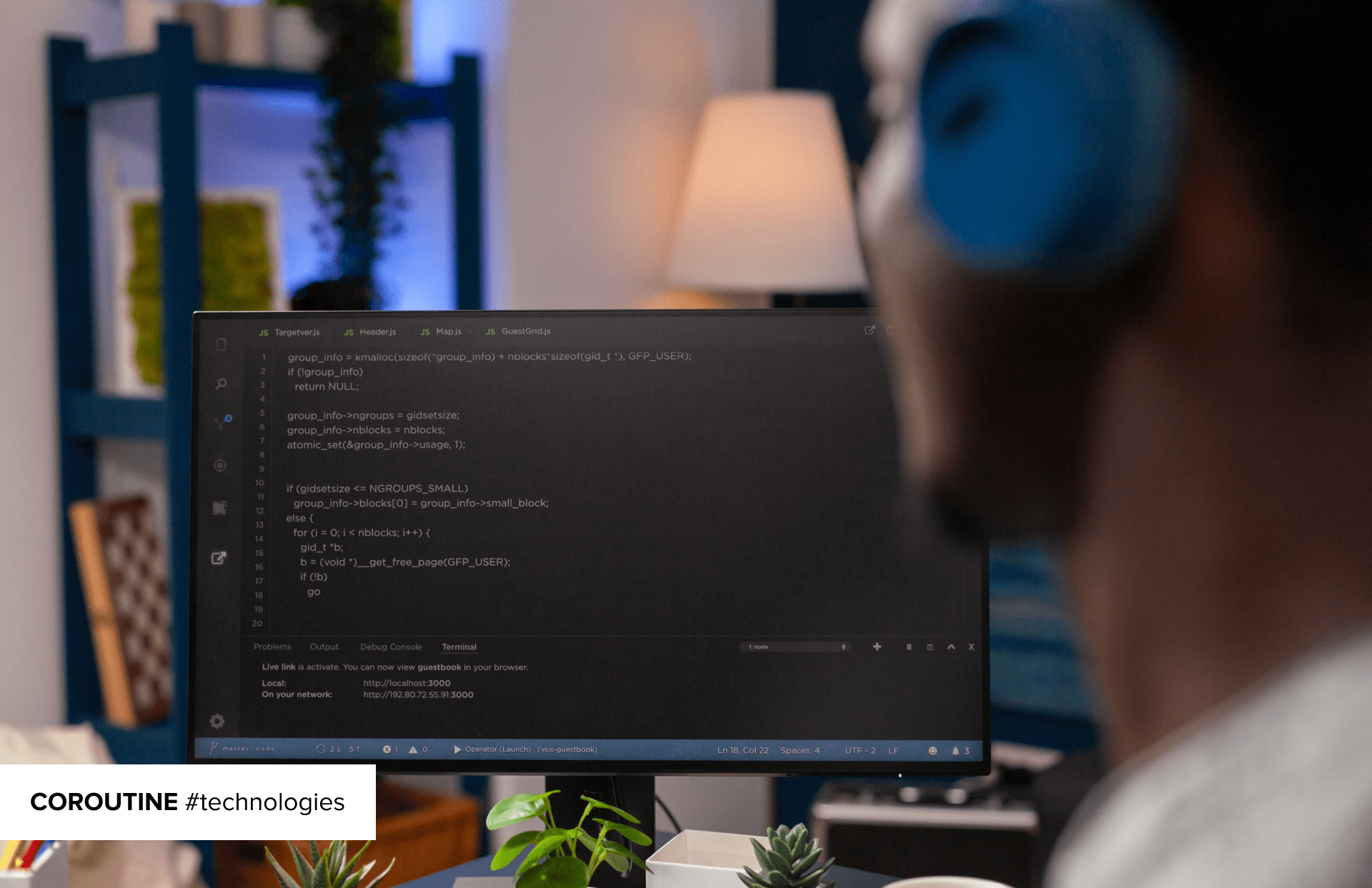
COROUTINE
Coroutine is a way to perform non-blocking asynchronous operations in Kotlin for Android applications.
Asynchronous programming with Coroutine allows you to use functions that can be started, stopped, and resumed without blocking the thread. Without this approach, it is difficult to create a flexible, user-friendly application that is easy to scale.
Coroutine can be created not only in Kotlin, but it has support for language-level coprograms with delegation of basic functions to libraries.
Kotlin recommends using Corutines for asynchronous programming. There are quite a few architectural nuances that determine the use of a coprogram. In most cases, asynchronous tasks are simply run in separate threads. This is a simpler standard solution, the effectiveness of which depends on the complexity of your project. However, if each thread and switching between them requires a significant amount of resources, you need to reduce the number of threads and the load on the system, or use only one thread at all, as in JavaScript, it is more profitable to use coprograms. They are also appropriate, for example, if the project has a lot of mutable states with which a function can return different values with the same arguments. Or if you can change the UI only from its thread, and so on.
The use of Coroutines significantly improves program performance. Suspending functions without blocking a thread can significantly save resources. In a standard situation, when only a few of the total number of threads are active, blocking one of them slows down a specific process and the entire work in general. Suspending a coprogram, in turn, does not require the cost of switching threads and using OS mechanisms.
In the user library, you can fine-tune the conditions for the operation of the coprogram. Developers can not only simply add suspension conditions, but also optimize them, log them, and much more. At the same time, coprograms require strict binding to breakpoints - each needs at least one suspend function that explains where you can safely stop calculations so that they can be easily resumed during the next call.
Kotlin makes it easy to use Corutines in projects thanks to support in many Jetpack libraries. Some of them have their own co-programming areas, which make it easy to create structured parallelism and, among other benefits, also reduce memory leaks.
Coroutine is a convenient and efficient tool for backend developers that simplifies asynchronous programming. It is essential for implementing complex, high-load systems. If your project requires a lot of asynchronous code, you may need to use co-programs. In some cases, RX java, like RX Swift for iOS, or other ways to solve the problem can be used to perform the same tasks for Android.
In simple and even medium-sized projects, Coroutines are often not needed due to their complexity and narrow specialization. However, there are quite a few complex tasks that are more efficiently solved through co-programs. Whether your project needs them or not will become clear at the stage of discussing and creating a development specification.

